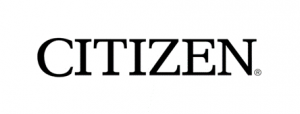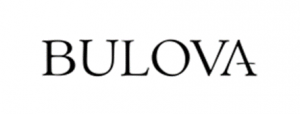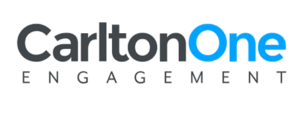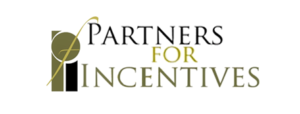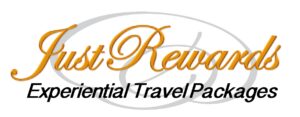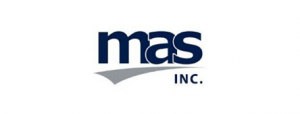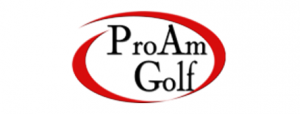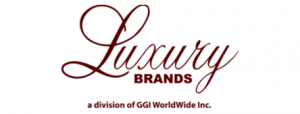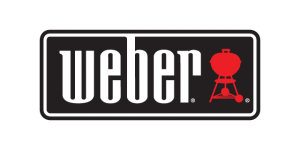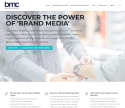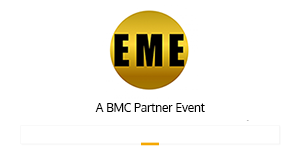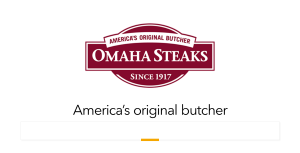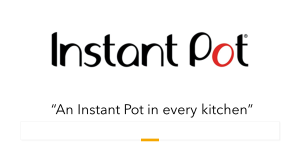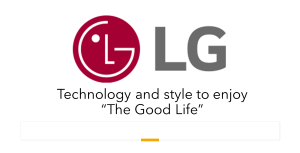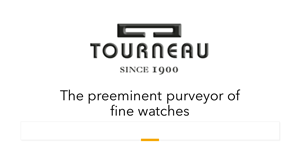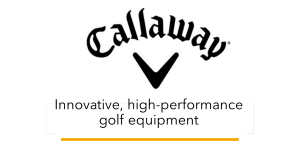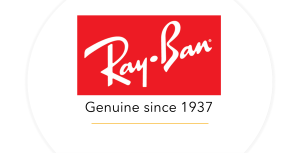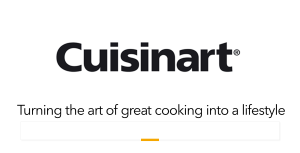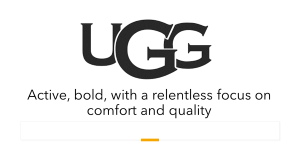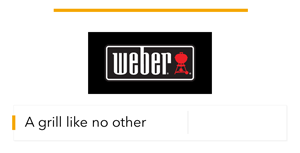Viewpoint: IRR Industry Has the Opportunity of a Generation
So much is happening in favor of this large but little-known business. Government and businesses together provide the best advertisement for the field of rewards and recognition in a generation through a plethora of incentives, contests, and recognition strategies to promote vaccinations. The House of Representatives passes the Workforce Investment Disclosure Act and the Securities & Exchange Commission begins drafting new 10-K human capital disclosure rules that likely will include “workforce engagement” disclosures of practices and metrics related to engagement, safety and wellness. The accounting giant PwC announces a huge investment in Environment, Social, Governance (ESG) management (otherwise known as Stakeholder Capitalism). These are developments the industry’s forefathers would have dreamed of.
By Bruce Bolger
The leaders of the incentive industry when I first joined in my late 20s as editor of then Incentive Marketing magazine, George Meredith, Howard Henry, Walter Tabor, Peter Erickson, and many others from the 1980s and 1990s who are still around, would not believe what we are seeing today: worldwide acceptance for a field that has rarely received little attention or respect. The goal of having organizations proud of their commitment to engaging and recognizing people and viewing it as a necessary investment with an ROI instead of a warm and fuzzy would have been headlines throughout the industry in those days.
The pandemic has created an unprecedented demand for advisory services for engagement across the enterprise, tangible incentives and engagement technologies, and an entirely new and unexpected opportunity for face-to-face events. The major challenge remains: no one has ever heard of this industry and others could swoop in to add value if incentive, recognition, loyalty and related businesses continue as nothing has changed. Here are the opportunities and what can be done to profit from them.
The Opportunities
The Pandemic Made Rewards, Recognition, Gifting Cool
Business and government responded to the desire to promote vaccines with an unprecedented array of contests, sweepstakes, and every imaginable award. Tangible rewards held sway—not too many of the promotions focused solely on the certificates or “I got a vaccination” badge. And, because of the work-from-home movement, organizations that in the past might have been unwilling to talk about the rewards and incentives offered to employees or customers jumped over themselves to find creative ways to express appreciation and are happy to share it. As a publisher in this field for decades, I couldn’t get any executive at a leading company that used incentive programs to appear on the cover of our publications, while a colleague in the “events” industry had little problem. Now, because of the pandemic, it’s “cool” to shower people with gifts and recognition—the more creative, dazzling, the meaningful, the better.
Engagement Has Shifted to a Need to Have
The Workforce Investment Disclosure Act, authored by U.S. Rep. Cindy Axne, D-Iowa, has passed the House. It would update disclosure requirements for public companies "that are currently inadequate to give investors a full picture of how modern businesses are investing in the safety and skills of their workforce. The bill would require public companies to report basic human capital metrics, including workforce turnover rates, skills and development training, workforce engagement, pay and benefits, and workforce health and safety." The rewards and recognition industry is uniquely capable of addressing these issues at the front lines if it seizes the opportunity.
Whether or not this bill gets through Congress, the new US Securities and Exchange Commission chairman Gary Gensler already has clearly stated that he is in favor of more detailed disclosures and will be able to act independently. In fact, the very same week the above law passed the House, the SEC officially began the process of updating 10-K human capital disclosures in line with the view that the disclosure rules updated under the last administration are inadequate to investor needs. The first process is to draft proposed new rules, followed by a commenting period. It will probably take another two to three years, so companies have time to prepare now for the inevitable, since the SEC does not need Congressional approval to change 10-K disclosure requirements.
That which gets measured and disclosed, gets managed. The SEC is likely to specifically require disclosures on workforce engagement, turnover, DEI, training, safety and wellness, which means many public companies will require the same of their customers.
What does this mean? All companies will need to disclose how they engage their employees, address turnover, health and safety, and DEI (Diversity, Equity, Inclusion) because the public companies required to do so by the SEC will require their supply chains to do the same, just as we saw with the implementation of ISO 9001 quality management standards in the 1990s.
Increased Focus On Human Capital Management, Reporting, And ROI Of Engagement
The Big Guns Are Coming
PwC, the leading accounting and management consulting firm, has announced a commitment to expand by 100,000 people in the area of ESG management, and that includes human capital management. The company says it plans to create a training academy. PwC will not be the first to make this investment. The challenge is that few if anyone in PwC have knowledge of the implementation process of the Social of ESG because this strategic and systematic approach is not taught in schools and encounters internal siloes that make implementation and measurement more difficult. It also requires an understanding of how to link the tactical elements of engagement, from branding, assessment and feed, recruitment, communications, learning, rewards and recognition, etc.
Total Rewards 2.0 Has Arrived
Because of the pandemic, organizations are completely rethinking how they build relationships with employees and other stakeholders with a far more holistic approach. Organizations will be looking at how they can build closer relationships with employees to help them with their work-life needs through a holistic approach to benefits and one-on-one communication.
The Emergence of Enterprise Engagement Technology
The work-from-home movement has spurred a new demand for creating a platform to engage with employees on demand, including news and information, assessment, social and tangible recognition, innovation, collaboration, incentive programs, etc. This is the equivalent of CRM (Customer Relationship Management) in the early 1990s: get ready for the hockey stick.
The Focus on the Rewards Experience and Surprise and Delight
If the pandemic taught us anything, it is the need for authenticity. This in turn has driven unprecedented demand for a more strategic and creative use of brands in reward and gifting programs. Companies are increasingly moving toward retail brands with higher perceived value and that tell a story in their promotional and gifting programs, creating demand for expertise that cannot be found at retail—where most companies continue to buy, largely unaware of the existence of expertise to enhance the ROI. The new norm will be surprising and delighting people for performance, rather than using carrots alone.
The Total Shift to Experiential Travel the Industry Always Dreamed of
Many of us saw this coming long before the pandemic, but the ability to use video meetings during this travel crisis has changed the industry for good. People will soon realize it’s absurd to travel long distances to sit in a room largely to hear keynotes and panel discussions they can get on demand on their smart phones or tablets, when what is really most valuable is the time in the hallways and events when you can finally talk to people, only to be drowned out by music.
A New Ratio for Plenaries and Panels to Experiences
The new event world includes bucket-list individual options or group events that enable people to truly get to know one another through learning and activities experienced together. Instead of mostly keynotes and panels, the new norm is about activities and experiences around common interests where instructors are facilitators and the outcome is new relationships and understanding of people and processes related to the topic.
The new approach to events will require more expertise than ever because the expert solution providers are not only content producers and marketing experts but also technical and logistics experts—taking over tasks most companies just don’t have the time, expertise, or resources to manage inhouse. This is no fast for travel agencies or social event planners.
There’s an Enormous Sales Force Waiting to Be Tapped
There are 20,000 promotional professionals with more access to human resources, sales, marketing professionals in business, education, institutions than any other sales force in the nation looking for new opportunities. There remains a vibrant marketplace of incentive representatives to support them on behalf of brands. While about 7% of distributors have recognized the opportunity in brands and incentives and are even expanding further into other areas, there are many more who are just beginning to take note that wherever there is a promotional product, there’s a bigger engagement program, and that it’s time to start broadening their solutions. See this EEA and Michigan Promotional Products Association webinar with two distributors and an incentive representative.
Just because it took 20 years for about 7% of distributors selling brands and incentive programs (according to PPA and ASI surveys_ does not mean that they cannot pivot now—especially when it’s clear the traditional business will not come back because of the increasing focus on sustainability.
Industry Recommendations
There are multiple ways for the different industry players to benefit.
The Incentive, Recognition, and Loyalty Companies
• Is it time to reconsider an industry story that has not changed in a decade or more? Is now the time to shift to an ROI-based, program design story with services to support the growing need for organizations to implement a strategic and systematic approach to engagement across the enterprise? There is no reason to cede the opportunity to PwC or the big five or other advisory firms when these companies have the relationships in place.
• If that’s the direction, the industry needs to make sure it is trained in business management and human capital management and metrics, reporting, and ROI of engagement practices across the enterprise.
• The opportunity is to help organizations run their businesses to drive the critical human capital metrics critical to their operations and which many will have to report.
• Focus on ensuring that events are part of a strategic communications plan with clear ROI metrics and that they extend their reach through hybrid participation, they are supported throughout the year with a digital and/or virtual “drip-marketing” approach for regular reinforcement.
• Look at new products and services you can sell beyond rewards, recognition, events, and technologies—how about human capital advisory ROI of engagement services; assessment; analytics; coaching and culture services; Total Rewards 2.0 services such as benefits and personal employee coaches, or whatever type of engagement solution required by the client.
• Consider reviving outreach efforts to colleges and universities with a story that will resonate with today’s youth.
• Look at testing relationships with key promotional professionals in your community interested in bringing your company’s service to your clients.
Brands, Gift Cards, Technology Providers—Tell Your Story; Help Educate The Market
• The big opportunity is to educate corporate decision makers that they should buy through the corporate channel rather than through retail, where most brands are purchased for rewards and recognition simply because no one has ever heard of the business.
• Focus on the story behind your brand, the way it’s being used to achieve organizational goals—tell the brand story and provide success stores or ideas, not the same story being told to consumers that so often show up in our in boxes.
• Work with your incentive representatives or promotional professionals to sponsor chamber of commerce education—business management is eager to hear the story of people management. Click here for an example.
• Look at all the ways you can enhance the reward experience through personalization, customization, and technology.
• Actively support education to create new distribution channels through reps, incentive, recognition, and loyalty companies in a way that enables you to tell your story to participants. The Brand Media Coalition has led the way in creating an open education program and managed outsourcing service for all distributors.
Travel And Motivational Events Business—Seize the Opportunity You’ve Been Waiting For
Despite decades of investment in research and the efforts of associations to emphasize expertise, the corporate end-user had commoditized the industry, until the pandemic. The impact of so many people working at home, no more face-to-face events, and the enormous self-assessment process going on everywhere when it comes to priorities, work, customers, suppliers, etc. has created an unprecedented need for companies to connect, but how? The event expert for the 2020s and beyond will be a creative impresario weaving an authentic strategic story across multiple media in an uncertain world that no one would ever think of hiring a travel agent to accomplish.
• The story is how to effectively implement a multi-media communication strategy that’s on demand yet respects the personal boundaries of our employees, customers, and channel partners. This will require new skills and/or relationships in the industry to provide clients with a seamless solution.
• The new hybrid world and ability of streaming video to do a lot of the training we used to do at events creates a new demand for advanced expertise in strategy, content design, logistics, project management, and measurement.
• The opportunity is to f ocus on becoming producers and business managers, not just event and logistics planners.
• Be part of the story development and telling process across all media, even if you have to align yourselves with other organizations.
• Look for ways to measure the return on investment of travel experiences, especially related to the event’s goals.
Promotional Professionals: Leverage Your Access
Promotional professionals have significant opportunities in the new world of engagement because no sales force has greater access to purchasing management in sales, marketing, human resources, education, government, and health care etc. About 7% of distributors already sell brands for gift-giving, incentive, recognition, and safety programs, and that percentage is expected to increase as more promotional professionals seek new ways to add value to customers. Click here for an interview with distributors and incentive representatives.
For the last 20 years, promotional professionals have benefited from continued industry growth in traditional promotional products, but even before the pandemic hit, there were warning signs that distributors could benefit by expanding the services offered to clients. Companies have become increasingly concerned with the concept of promotional products ending up in landfills, fueled by articles in leading business media.
Now, many are recognizing that behind every promotional product is a broader engagement strategy, and that by asking good questions, promotional professionals can find new ways to add value. Click here for an article that explains more about the opportunities for promotional professionals.
Incentive Representatives: Help Expand Your Marketplace and Value Proposition
For brands, master fulfillment companies, and others active in the incentive business, incentive reps are potentially more important than ever. With more players entering the field of engagement, incentives, recognition, and gifting, there are greater need for people to help support them, not only in terms of customer service but education. Incentive representatives can benefit from the human capital and ROI of engagement movement by:
• Looking for new ways to educate their marketplaces about human capital management, ROI of engagement, better program design, and the story-telling power of brands.
• Identifying new types of resellers, such as marketing and HR advisory firms.
• Providing sales representation services for leading incentive, recognition, loyalty, and other types of engagement companies, as well as for brands.
The Associations—Is the Education and Event Formats Addressing the Opportunities
• Consider stepping back and look at the story, education, and activities on your agendas to see if they reflect the major trends, the sense of urgency, and opportunities affecting the business.
• Evaluate live event formats and ask if it makes any sense to go back to the norm.
• Make sure that your story and education support the urgency of the opportunities and the new skills people will need.
• Outreach—is it time to revisit the need to have a strategic and systematic plan to educate end-users on this marketplace and its experts? How can they support education in colleges and universities so that the interns and entry-level people sourcing solutions are aware of this field?
• Consider developing or supporting outreach efforts to colleges and universities with a story that will resonate with today’s youth.
Contact Information
Bruce Bolger
Managing Director
Enterprise Engagement Alliance at TheEEA.org
914-591-7600, ext. 230
Education, Certifications, and Information to Activate
Brand Media and Enterprise Engagement
A complete learning, certification, and information program and a course syllabus for educators.
Resources: The Brand Media Coalition, the only guide to the story-telling power of brands and where to source them for business, event, promotional gifting, and rewards and recognition. Enterprise Engagement Solution Provider Directory. The only directory of engagement solution providers covering all types of agencies and tactics as well as insights on how to select them.
Communities: The Enterprise Engagement Alliance and Advocate and the Brand Media Coalition free resource centers offering access to the latest research, news, and case studies; discounts, promotions, referrals, and commissions, when appropriate to third-party solution providers from participating coalition solution provider members.
Training and Certification
Enterprise Engagement Alliance Education: Certified Engagement Practitioner; Advanced Engaged Practitioner, and Certified Engagement Solution Provider learning and certification programs on how to implement Stakeholder Capitalism principles at the tactical level.
International Center for Enterprise Engagement: The only training and certification program for ISO 30414 human capital reporting and ISO 10018 quality people management certification.
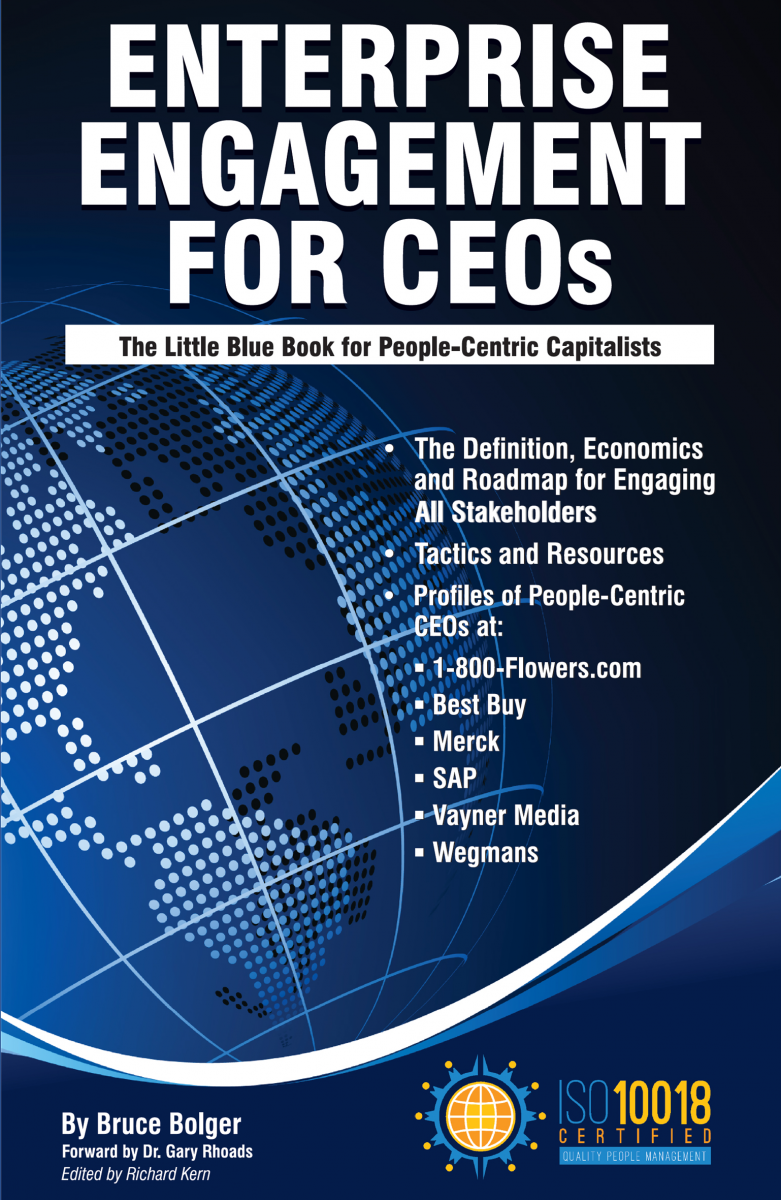
The EEA offers a complimentary course syllabus for educators.
In Print:
This is the definitive implementation guide to Stakeholder Capitalism, written specifically to provide CEOs and their leadership teams a concise overview of the framework, economics, and implementation process of a CEO-led strategic and systematic approach to achieving success through people. (123 pages, $15.99)

The first and most comprehensive book on Enterprise Engagement and the new ISO 9001 and ISO 10018 quality people management standards. Includes 36 chapters detailing how to better integrate and align engagement efforts across the enterprise. (312 pages, $36.)
Online:
10-minute short course: click here for a 10-minute introduction to Enterprise Engagement and ISO standards from the Coggno.com learning platform.
Services:
• The Engagement Agency at EngagementAgency.net, offering: complete support services for employers, solution providers, and technology firms seeking to profit from formal engagement practices for themselves or their clients, including Brand and Capability audits for solution providers to make sure their products and services are up to date.
• C-Suite Advisory Service—Education of boards, investors, and C-suite executives on the economics, framework, and implementation processes of Enterprise Engagement.
• Speakers Bureau—Select the right speaker on any aspect of engagement for your next event.
• Mergers and Acquisitions. The Engagement Agency’s Mergers and Acquisition group is aware of multiple companies seeking to purchase firms in the engagement field. Contact Michael Mazer in confidence if your company is potentially for sale at 303-320-3777.
Enterprise Engagement Benchmark Tools: The Enterprise Engagement Alliance offers three tools to help organizations profit from Engagement. Click here to access the tools.
• ROI of Engagement Calculator. Use this tool to determine the potential return-on-investment of an engagement strategy.
• EE Benchmark Indicator. Confidentially benchmark your organization’s Enterprise Engagement practices against organizations and best practices.
• Compare Your Company’s Level of Engagement. Quickly compare your organization’s level of engagement to those of others based on the same criteria as the EEA’s Engaged Company Stock Index.
• Gauge Your Personal Level of Engagement. This survey, donated by Horsepower, enables individuals to gauge their own personal levels of engagement.
For more information, contact Bruce Bolger at Bolger@TheEEA.org, 914-591-7600, ext. 230.


